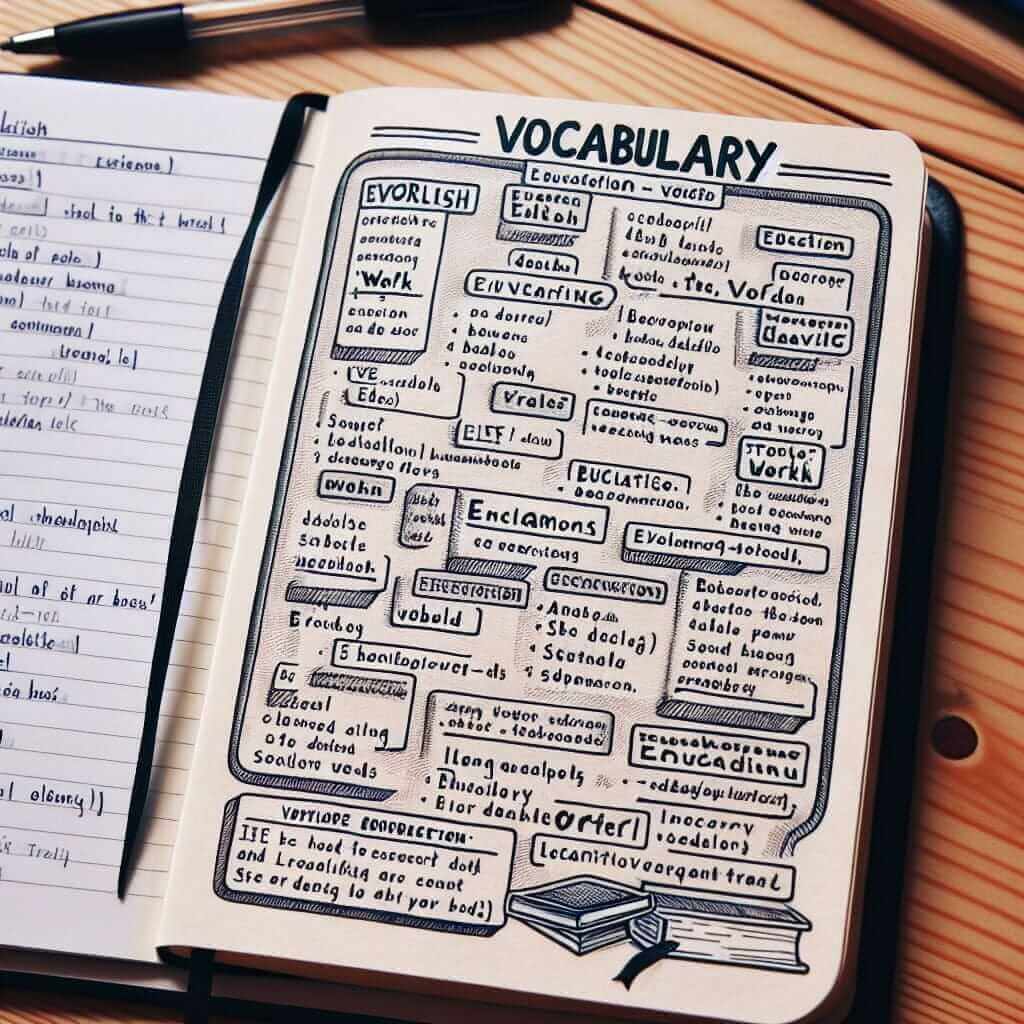As an IELTS instructor with over two decades of experience, I’ve witnessed firsthand the transformative power of a strong vocabulary in the Speaking test. While grammar and pronunciation are crucial, it’s your vocabulary that truly unlocks fluency and high scores. This guide will delve into effective strategies to boost your word power, ensuring you communicate confidently and impressively on test day.
Why is Vocabulary Important for IELTS Speaking?
The IELTS Speaking test evaluates your ability to communicate effectively in English. A rich vocabulary empowers you to:
- Express yourself precisely: Finding the right words allows you to convey your thoughts and ideas with clarity and nuance.
- Demonstrate fluency and coherence: A wide range of vocabulary enables you to speak smoothly and naturally, connecting ideas seamlessly.
- Achieve a higher score: Examiners specifically assess your “Lexical Resource,” which encompasses the breadth and accuracy of your vocabulary usage.
Effective Strategies to Expand Your IELTS Speaking Vocabulary
Here’s how to make your vocabulary learning journey both effective and enjoyable:
1. Learn Vocabulary Strategically
- Focus on IELTS-Specific Topics: Familiarize yourself with common themes that frequently appear in the Speaking test, such as education, technology, environment, and travel.
- Go Beyond Single Words: Don’t just memorize isolated words. Learn related words, collocations (words that commonly go together), and idioms to enhance your fluency and naturalness. For example, instead of just “happy,” learn “delighted,” “overjoyed,” “content,” and common phrases like “in high spirits.”
- Use Vocabulary Lists and Flashcards: Leverage resources like the official IELTS vocabulary lists and create flashcards to practice regularly. Incorporate spaced repetition techniques to reinforce your memory.
2. Make Vocabulary Acquisition Engaging and Practical
- Immerse Yourself in English: Engage with authentic English materials like movies, TV shows, podcasts, and books. Pay attention to how words are used in context.
- Practice Speaking Regularly: Converse with English speakers, join language exchange groups, or record yourself speaking on IELTS-related topics. The more you use new words, the more they’ll stick.
- Use a Vocabulary Notebook: Keep a dedicated notebook to jot down new words, their definitions, example sentences, and even pictures to create visual associations.
3. Refine Your Vocabulary Usage
- Focus on Accuracy and Appropriateness: While a wide vocabulary is impressive, it’s crucial to use words accurately and in the right context. Avoid using overly complex words if you’re unsure of their meaning.
- Paraphrase Effectively: If you can’t remember a specific word, don’t panic! Use your existing vocabulary to paraphrase and convey your message.
- Seek Feedback and Learn from Mistakes: Record your practice sessions and analyze them for vocabulary usage. Request feedback from teachers or language partners to identify areas for improvement.

Examples from IELTS Speaking Tests
Let’s look at how you can incorporate richer vocabulary into your responses:
Examiner: What are the benefits of learning a new language?
Candidate (Basic): Learning a new language helps you get a good job.
Candidate (Improved): Acquiring a new language significantly enhances your career prospects, opening doors to a wider range of opportunities in today’s globalized job market.
Examiner: Do you prefer to travel alone or with others?
Candidate (Basic): I like to travel with friends, it’s fun.
Candidate (Improved): I derive immense pleasure from traveling with companions, as it fosters a sense of camaraderie and shared adventure. However, solo travel holds its own appeal, allowing for introspection and personal discovery.
Top Tips for Success
- Start Early, Stay Consistent: Vocabulary building is a marathon, not a sprint. Make it a habit to learn and practice regularly.
- Don’t Overlook Pronunciation: Learn the correct pronunciation of new words to ensure you’re understood clearly.
- Believe in Yourself: Confidence plays a significant role in the Speaking test. Trust in your preparation and strive to express yourself fluently and accurately.
Remember, a strong vocabulary is a powerful asset for IELTS Speaking success. With dedication, strategic learning, and consistent practice, you can confidently demonstrate your language proficiency and achieve your desired score. Good luck!